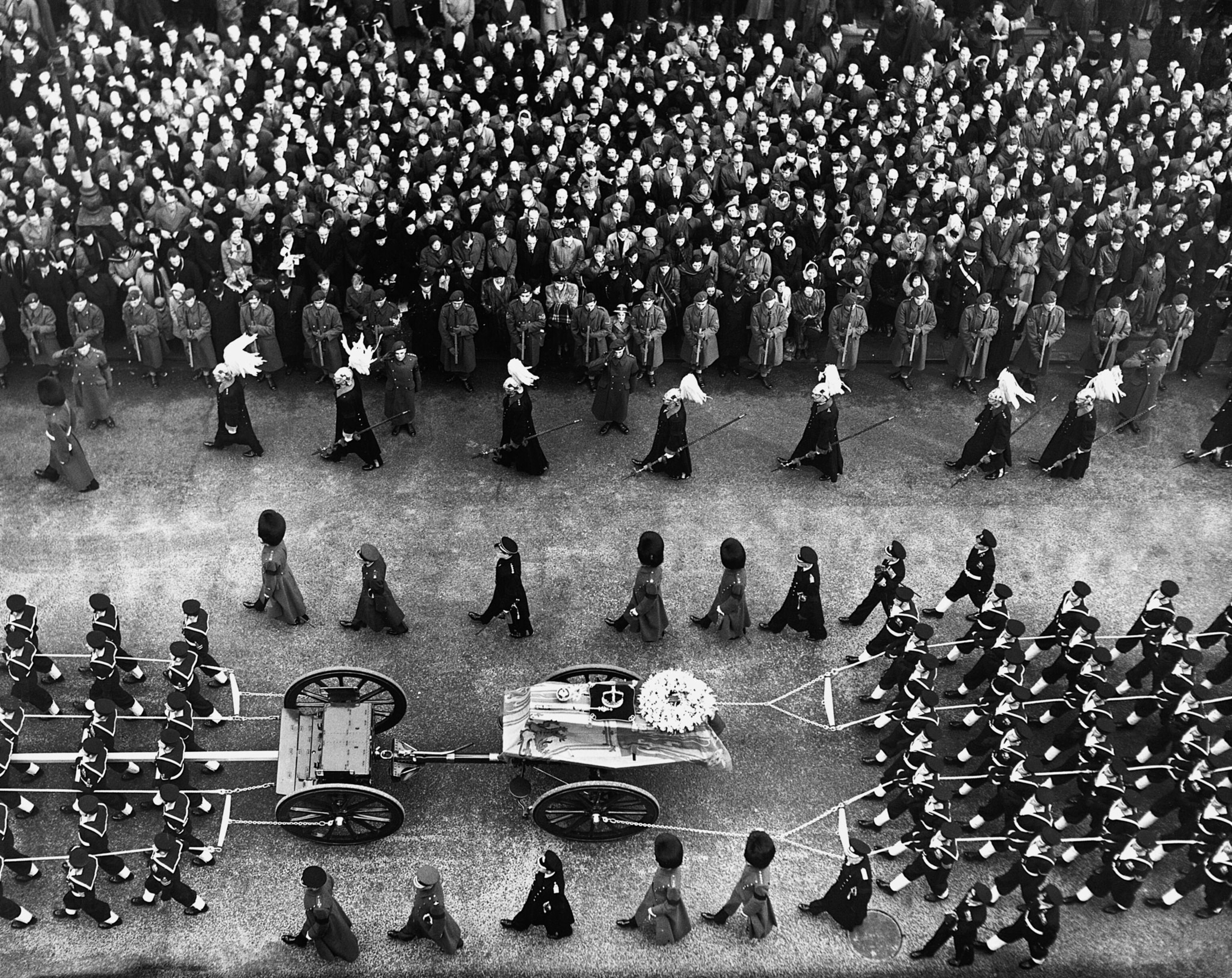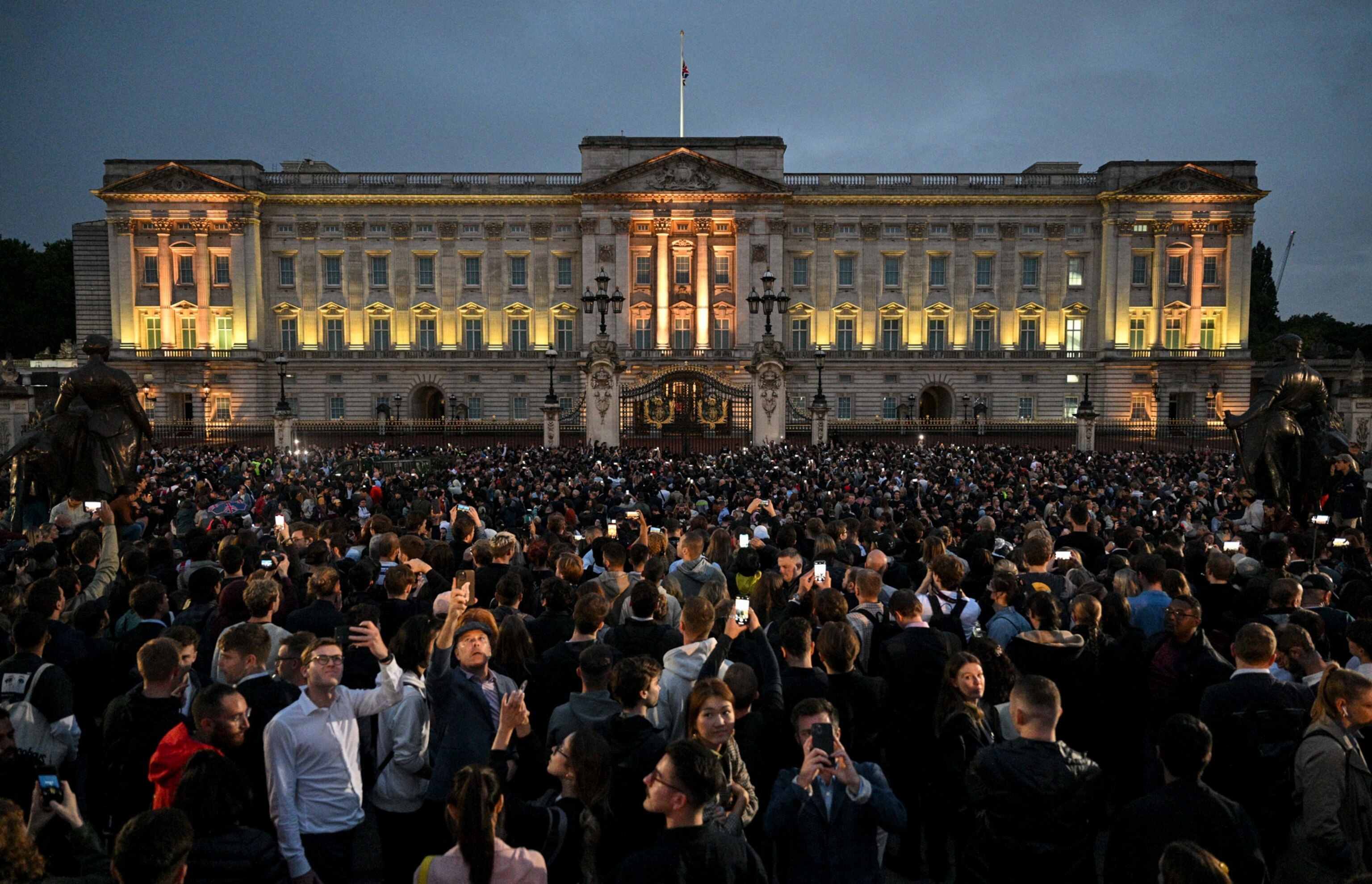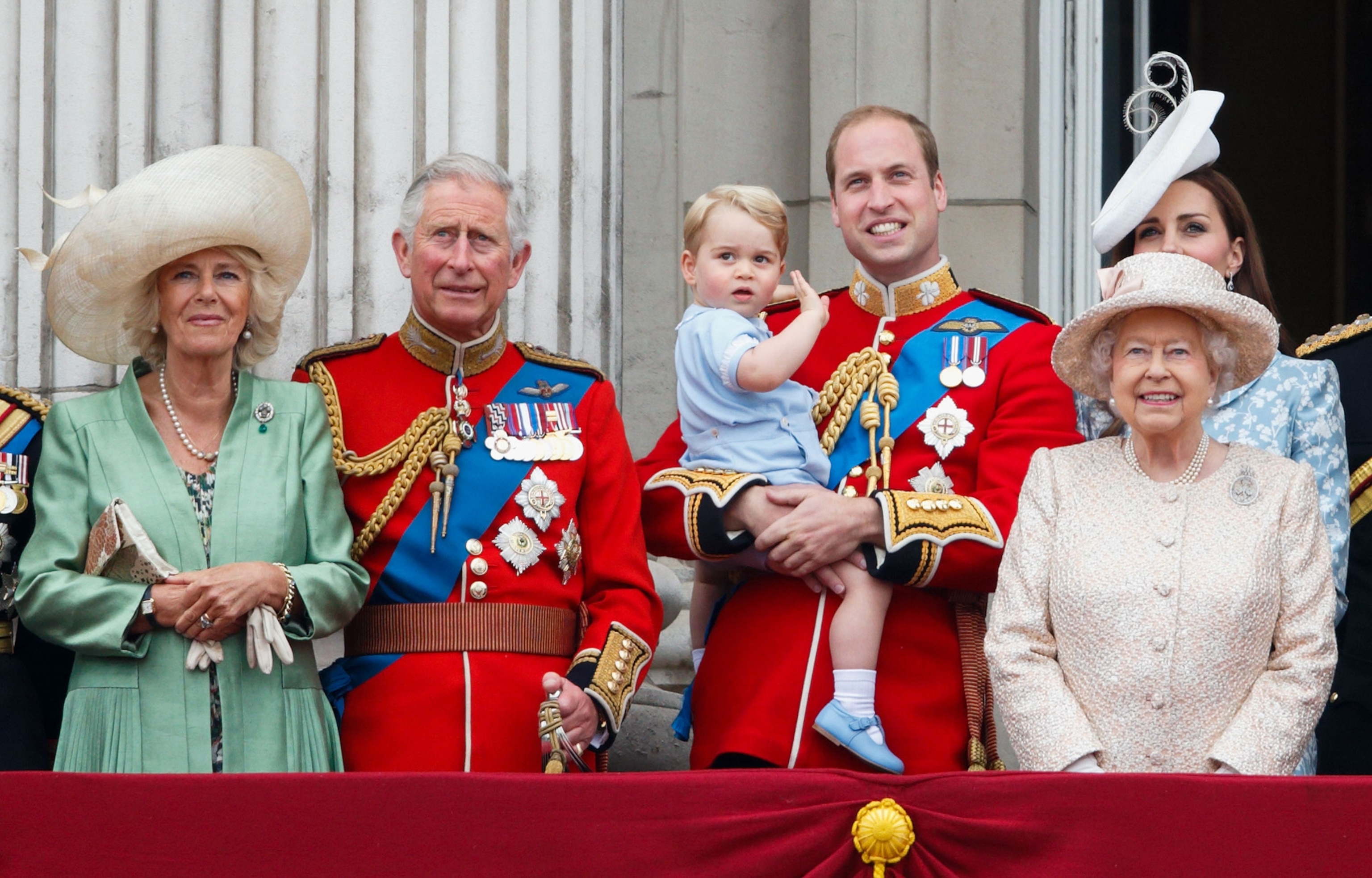
What happens now that Queen Elizabeth II has passed?
Complex ceremonies and rituals, ancient and modern, are put into play for the first time in 70 years.
The death of Queen Elizabeth II yesterday not only triggered a global outpouring of farewells but also set in motion all sorts of pomp, circumstance, and public mourning—rituals Great Britain hasn’t seen since the death of Elizabeth’s father, George VI, in February 1952.
Technically speaking, Elizabeth’s death constituted a Demise of the Crown, a legal term for the end of the British sovereign’s reign. Steps that follow have been carefully choreographed, reviewed, and rehearsed for decades. Edward Young, Elizabeth’s private secretary, conveyed the news to British Prime Minister Liz Truss using a coded phrase—allegedly “London Bridge is down.”

What’s in a name?
Now that the news has gone public, Parliament will meet as soon as possible to swear allegiance to Elizabeth’s son Charles, who became King Charles III the instant his mother died. The new king chose his given name, Charles, as his regnal name, despite the checkered reputations of other monarchs with the name. Charles I was an authoritarian who helped stoke a civil war and was eventually executed; Charles II was a charming lothario known as the Merry Monarch. When asked what her regnal name would be when she came to the throne in 1953, the late queen reportedly said, “My own, of course—what else?”

The king’s wife, Camilla, will technically be queen consort according to the British custom of giving a sovereign’s wife the equivalent title of her husband. Interestingly, however, Camilla indicated when she married Charles in 2005 that she would use the title HRH princess consort instead—a break with tradition in deference to Charles’s first wife, Diana, who died in 1997.
But in February this year, on the eve of her Platinum Jubilee, the late queen expressed in a statement her "sincere wish" that Camilla take the title of queen consort when the time came, in recognition of her "loyal service."
The British Constitution does not give succession rights to the spouses of monarchs, though they obtain symbolic titles when their spouse takes the throne. Prince Philip, Queen Elizabeth II’s husband of 73 years, was the longest-serving royal consort in British history. However, his death on April 9, 2021, at the age of 99 did not affect the line of succession since he was not up next for the throne. Now the new king’s son William is first in the line of succession.
New king, old rituals
Within 24 hours of the queen’s death, an Accession Council of her closest advisers and other important state officials is summoned. The council confirms the heir’s name in an official proclamation.

The new monarch then meets with the new Privy Council and takes an oath to “maintain and preserve” the Church of Scotland, which, unlike the Church of England, is not headed by England’s monarch. (The monarch governs the Church of England, but the Church of Scotland recognizes only God as its supreme governor and, despite its name, is not state controlled.) Then, the accession proclamation is read in various public places throughout the United Kingdom, sometimes accompanied by a gun salute.
A well-rehearsed media response
Meanwhile, U.K. media outlets are in the midst of the wall-to-wall Elizabeth coverage they’ve been planning for decades. British radio stations have careful “obit procedures” that dictate what type of music should be played at a moment of national tragedy, and BBC editors reportedly dread the inevitable complaints that their coverage is in some way inappropriate.
In 2002, BBC chief newscaster Peter Sissons was raked over the coals by the tabloid press for wearing a dark red tie while announcing the death of the Queen Mother. He later revealed that he and others had been required to rehearse for her death—and that of the even more important monarch—every six months.
What comes next?
A state funeral at Westminster Abbey and burial at the King George VI Memorial Chapel at Windsor Castle will come next. But though the United Kingdom will have a new king, don’t expect a coronation anytime soon. The thousand-year-old ceremony is a joyful occasion that doesn’t mix with mourning, so it’s likely to take place months, if not more than a year, after the queen’s death.